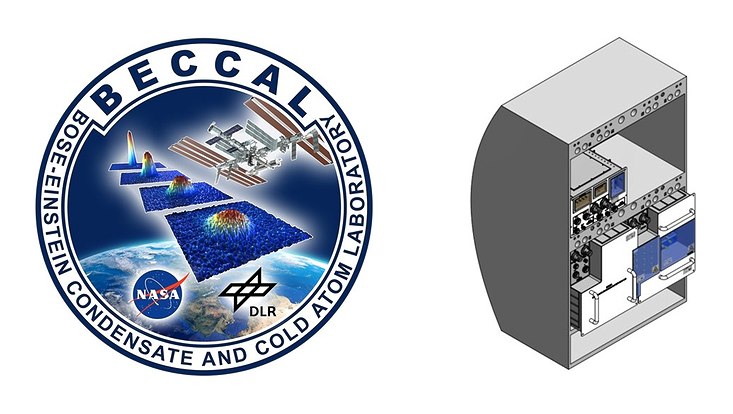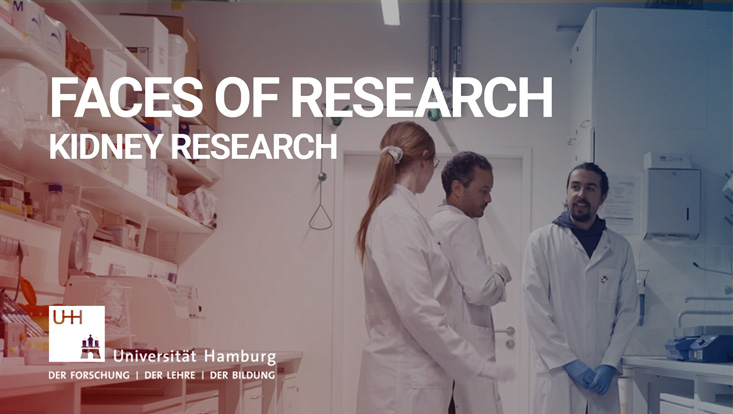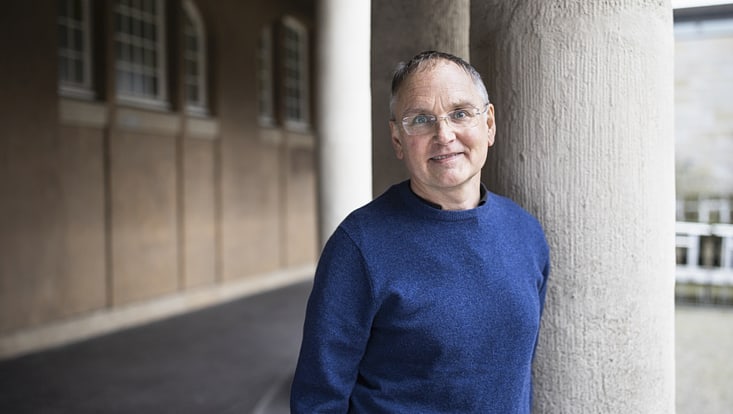Joint project on quantum technologyResearchers develop laser system for experiments in weightlessness
12 April 2022, by Ingeborg Adler

Photo: DLR, DOI: 10.1140/epjqt/s40507-020-00090-8
In the weightlessness of the International Space Station, experiments can be carried out that would not be possible on Earth. As part of a new collaborative project, researchers from the Department of Physics at Universität Hamburg are now building a complete quantum gas experiment that will enable experiments with ultracold atoms in space.
The experiment is being developed for the joint project "Development of a laser system for experiments with Bose-Einstein condensates on the International Space Station within the BECCAL payload (BECCAL-II)". The Hamburg team led by Prof. Dr. Klaus Sengstock and Dr. Ortwin Hellmig from the Institute of Laserphysics and the Centre for Optical Quantum Technologies - together with colleagues from Johannes Gutenberg University Mainz (JGU) - is developing a laser system for the investigation of ultracold quantum gases in a subproject funded with one million euros. This work incorporates findings from numerous previous experiments under zero gravity, such as MAIUS, QUANTUS and KALEXUS, in which the Universität Hamburg was also involved.
"In these experiments, we have already been able to demonstrate the exceptional stability of the optics developed in Hamburg in the past. For the MAIUS rocket mission in January 2017, for example, we developed a fully functional laser system of comparable complexity. We are therefore very excited about the renewed opportunity," says Ortwin Hellmig. Klaus Sengstock is also conducting research on ultracold quantum gases in the Cluster of Excellence "CUI: Advanced Imaging of Matter," so the expertise gained there will also be incorporated into the new project.
Off to the ISS in 2026
BECCAL-II is part of the "Bose Einstein Condensate Cold Atom Laboratory" (BECCAL), a successor to the CAL project, which has conducted numerous experiments on the International Space Station (ISS) since 2018. The plan is to bring the new system to the ISS in early 2026, replacing the previous apparatus.
The BECCAL experiment is a multi-user platform that will be open to national and international scientists to realize their ideas. The platform will enable them to perform a wide range of experiments - including those in the fields of quantum sensing, quantum information or quantum optics. Specifically, BECCAL will expand experimental capabilities in the areas of precision atom interferometry and the manipulation of atoms with detuned light fields. Thus, it will be investigated how the wave properties of certain atoms interact with each other and how certain frequencies of the laser affect the atoms.
BECCAL
BECCAL is a cooperative project between the research-based German Aerospace Center (DLR), the Agency and NASA. Through this cooperation agreement, other institutes are involved, such as DLR-QT, DLR-SI, DLR-SC, the Center of Applied Space Technology and Microgravity, Leibniz Universität Hannover, Ferdinand-Braun-Institut für Hochfrequenztechnik (FBH), Universität Hamburg, Johannes Gutenberg-Universität Mainz (JGU), Humboldt-Universität zu Berlin (HUB), OHB System AG and Fierlinger Magnetics. In the joint project BECCAL-2 for the development of the laser system for the BECCAL payload, Universität Hamburg is collaborating with the HUB, FBH and JGU. The funding code is DLR-50WP2103.


